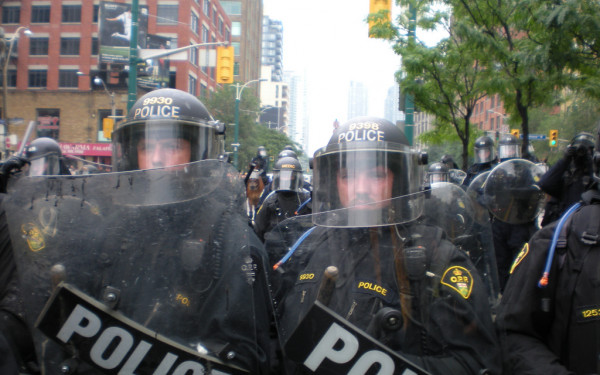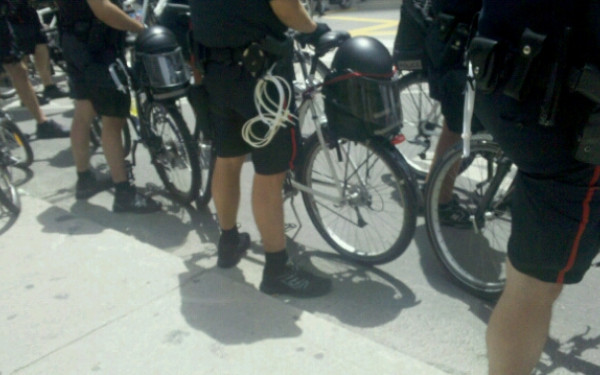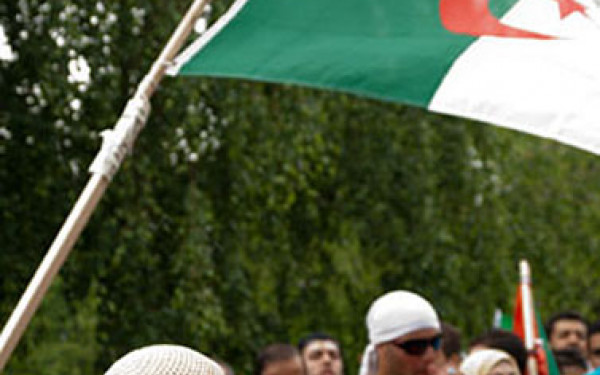How To Protest in Montreal (And How Not To)
Montreal is known for its activism and large number of protests.
Many are organized as annual events, while others occur in response to the changing political environment of Montreal and other parts of the world. They can be quite exciting to take part in and can make you feel good for kicking apathy to the curb and finding your voice.
However, protests here are known to be unpredictable and have occasionally ended in mass arrests—especially since the amendment of municipal bylaw P-6 during the 2012 student protests, requiring that a protest route be provided to police and prohibiting protesters from wearing masks.
It’s important to have your wits about you while you participate in a protest. For that reason, we’ve put together a handy guide on what you should know before taking to the streets.
Come Prepared: How long a protest lasts is dependent on a number of factors; some are over rather quickly, while others will drag on late into the night. If police decide to arrest participants en masse, you may end up spending the night on the outskirts of the city at one of the Service de police de la Ville de Montréal’s booking stations. It’s important to come prepared with food, water and a few layers of clothes in case the temperature or weather changes during the demonstration.
Pay Attention to Police Tactics: Whether you agree or not with the heavily militarized response tactics the SPVM deploys during protests, it’s hard to deny that they are damn good at what they do. They know how to shut down a protest, and will do so at a moment’s notice if they feel it’s necessary.
During the protest, pay close attention to the actions of the police to anticipate whether or not they will let the protest proceed. Watch the helicopter in the sky during large demonstrations to help predict which roads will be blockaded. Be weary of tight streets on which police can easily pinch off and isolate protestors.
Don’t Overly Antagonize the Police and Non-Participants: Social movements are composed of a wide array of different actors with different intentions behind why they are participating. Many are genuinely concerned with the issue being protested, while others are there to yell at police and kick cars.
Try not to get too caught up in the tomfoolery that being surrounded by thousands of chanting people disrupting traffic may bring out. Smashing a window or spitting in the face of a police officer is a surefire way to be arrested—and it also makes you look like an ass.
Know Your Rights: It’s important to know your rights before taking to the streets. Taking photos and filming is by all means legal during a protest and if an officer requests you to stop filming them, you are under no means obligated to do so. This helps ensure that the police response remains civil, and your videos and photos may be used to highlight harsh police responses that do occasionally occur.
Additionally, unless an officer informs you that you are under arrest, you have the right to refuse to answer any questions beyond providing a piece of identification and a date of birth. Silence is golden.
So You Are Arrested, Now What?: Stay calm. Being arrested sucks, and it may happen if you attend protests regularly.
If you are arrested, take note of where the police are processing individuals and try to make your way towards the queue. The further you are from the processing queue, the longer it will end up taking to get processed and back home.
The chances of getting out of a police kettle, after the fact, are pretty slim. The ticket you will receive does not count as a criminal offence, and it will not go on your criminal record. It’s akin to a big, shitty parking ticket.
Joining a protest is a way of directly impacting political change. It can be both fun and exciting. Be mindful of others, keep your fist in the air and try not to be a jerk.

_900_600_90.jpg)
_900_620_90.jpg)



